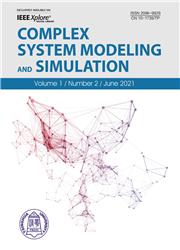RM-MOCO: A Fast-Solving Model for Neural Multi-Objective Combinatorial Optimization Based on Retention
引用次数: 0
Abstract
Multiobjective combinatorial optimization (MOCO) problems have a wide range of applications in the real world. Recently, learning-based methods have achieved good results in solving MOCO problems. However, most of these methods use attention mechanisms and their variants, which have room for further improvement in the speed of solving MOCO problems. In this paper, following the idea of decomposition strategy and neural combinatorial optimization, a novel fast-solving model for MOCO based on retention is proposed. A brand new calculation of retention is proposed, causal masking and exponential decay are deprecated in retention, so that our model could better solve MOCO problems. During model training, a parallel computation of retention is applied, allowing for fast parallel training. When using the model to solve MOCO problems, a recurrent computation of retention is applied, enabling quicker problem-solving. In order to make our model more practical and flexible, a preference-based retention decoder is proposed, which allows generating approximate Pareto solutions for any trade-off preferences directly. An industry-standard deep reinforcement learning algorithm is used to train RM-MOCO. Experimental results show that, while ensuring the quality of problem solving, the proposed method significantly outperforms some other methods in terms of the speed of solving MOCO problems.基于保留的神经网络多目标组合优化快速求解模型
多目标组合优化问题在现实世界中有着广泛的应用。近年来,基于学习的方法在解决MOCO问题方面取得了良好的效果。然而,这些方法大多使用注意机制及其变体,在解决MOCO问题的速度上有进一步提高的空间。本文根据分解策略和神经组合优化的思想,提出了一种基于保留的MOCO快速求解模型。提出了一种全新的保留计算方法,摒弃了保留中的因果掩蔽和指数衰减,使我们的模型能够更好地解决MOCO问题。在模型训练过程中,采用了保持量的并行计算,实现了快速的并行训练。当使用该模型来解决MOCO问题时,应用循环计算保留,从而更快地解决问题。为了使我们的模型更加实用和灵活,提出了一个基于偏好的保留解码器,它允许直接为任何权衡偏好生成近似的帕雷托解。采用行业标准的深度强化学习算法对RM-MOCO进行训练。实验结果表明,该方法在保证问题求解质量的同时,在求解MOCO问题的速度上明显优于其他方法。
本文章由计算机程序翻译,如有差异,请以英文原文为准。
求助全文
约1分钟内获得全文
求助全文

 求助内容:
求助内容: 应助结果提醒方式:
应助结果提醒方式:


